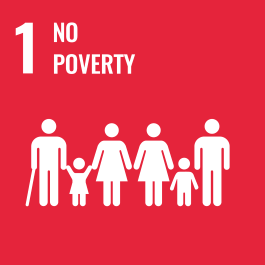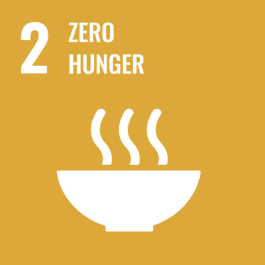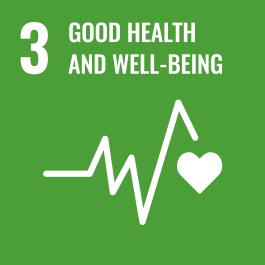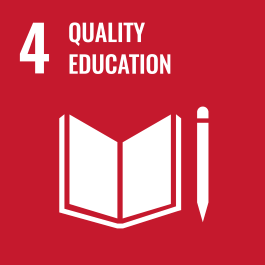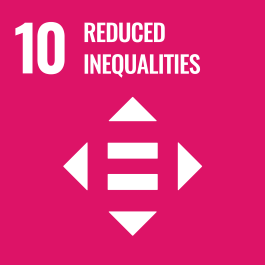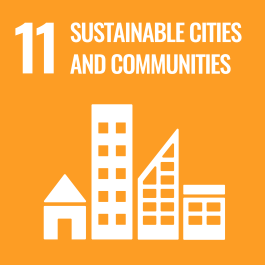Menu
Close
What you need to know about mental health and the UN’s Sustainable Development Goals
Feb 7, 2024
Source: All quoted indicators and passages below are cited from UN Statistics Division – Global indicator framework for the Sustainable Development Goals
The Canadian Mental Health Association’s (CMHA) vision is a Canada where mental health is a universal human right. Mental health is also recognized as a human right in international human rights lawi and has been recognized in the United Nations 2030 Agenda for Sustainable Development as a fundamental component of health and well-being.
In 2015, the United Nations launched a blueprint for peace and prosperity for people and the planet, a 15-year agenda containing seventeen Sustainable Development Goals (SDGs). The agenda is rooted in the three dimensions of sustainable development: economic, social, and environmental sustainability. Under the umbrella of universal health coverage and access to quality health care, the agenda calls for “equitable and universal access to […] health care and social protection, where physical, mental and social well-being are assured.”
Below is a summary of the UN’s Sustainable Development Goals that relate to mental health, mental illness and substance use health, including the social determinants of health and mental health.
Sustainable Development Goal (SDG) 1 seeks to end poverty by implementing “nationally appropriate social protection systems and measures for all.”
People with mental health and substance use health problems are more likely than the general population to live in poverty. This goal highlights the need to have adequate systems of social protection, including income supports for people living with disabilities, those who are unemployed, families and children, and older persons. Some countries have established a guaranteed basic income to achieve this goal. Social protection must equally be available to people living with a mental illness.
SDG 2 seeks to end hunger and address food insecurity, particularly for vulnerable populations. (Target 2.1)
Adequate access to healthy food is a key social determinant of health and mental health. Many people living with a mental illness face significant barriers to accessing healthy food because it is unaffordable or, in some cases, unavailable. People need access to foods that are nutritious, culturally appropriate and sustainable, regardless of socioeconomic status and where they live.
SDG 3 seeks to ensure healthy lives and promote well-being for all, at all ages:
- Target 3.4: reduce by one third premature mortality from non-communicable diseases through prevention and treatment and promotion of mental health and well-being.ii
- Target 3.5: strengthen the prevention and treatment of substance abuseiii and abuse of narcotics and alcohol.iv
- Target 3.8: universal health coverage, including financial risk protection, access to quality essential health-care services and access to safe, effective, quality and affordable essential medicines and vaccines for all.v
This goal outlines specific targets and indicators related to mental health promotion, mental illness prevention, treatment, and issues of accessibility, quality, acceptability, and universality. Having access to mental health services that are on par with physical health services is a human right. This access is also necessary to achieve well-being and positive health, economic and social outcomes.
Unfortunately, for people with a mental illness or substance use health concern, affordable, accessible, comprehensive and culturally appropriate mental health and addiction services are often out of reach. This is also the case for people with intersecting forms of inequality [on the basis of race, ethnicity, (im)migration status, geographic location, sex, sexual orientation and gender identity, among other factors]. Mental health services must be free of charge, integrated into primary care, and delivered holistically alongside other health and social services. This will require policy change and increased investments.
Additionally, we need targeted investments in mental health promotion and mental illness prevention to foster mental health and well-being, prevent the onset or worsening of mental illnesses, support recovery, reduce the burden on the acute healthcare system and reduce healthcare expenditures. Clear policy interventions and investments are also needed to ensure that free substance use health and addiction services are integrated into the delivery of mental health programs and services and the broader healthcare system. People from diverse backgrounds with lived experience of a mental illness and of substance use health problems must be consulted on how to address all barriers to mental healthcare services, including geographic location and cultural appropriateness.
SDG 4 seeks to deliver inclusive and equitable quality education and promote lifelong learning opportunities for all, including by increasing the number of youth and adults who have relevant skills, including technical and vocational skills, for employment, decent jobs and entrepreneurship (Target 4.4).
Up to 70% of mental health problems and illnesses first appear in childhood or adolescence.vi It is critical to provide adequate mental health supports for children and youth, both in schools and in the community. These supports include mental health promotion and mental illness prevention programs, and social and emotional learning.
We should all have the right to quality education and training. People living with a mental illness encounter many barriers to finding and keeping decent employment. Laws, policies and programs relating to training, hiring and employment practices must be created in consultation with people living with a mental illness in order to consider and respect their needs and realities.
SDG 10 seeks to reduce inequalities by empowering and promoting the social, economic and political inclusion of all, irrespective of age, sex, disability, race, ethnicity, origin, religion or economic or other status (target 10.2), ensuring equal opportunity and reduce inequalities of outcome, including by eliminating discriminatory laws, policies and practices and promoting appropriate legislation, policies and action in this regard (target 10.3), and adopting policies, especially fiscal, wage and social protection policies (target 10.4)
Laws and policies continue to stigmatize and discriminate against people living with mental illnesses and substance use health problems. People living with a mental illness or substance use problem often face discrimination from healthcare providers, police, within the judicial system and in the wider community. They often encounter barriers to healthcare and basic necessities, such as employment and a livable income, housing, healthy and affordable food and opportunities for training and education.
People with mental illnesses require opportunities and resources if they are to participate meaningfully in decision-making that affects their lives. This includes the following: better access to representation within the justice system; more self-determination in choosing their care pathways to reduce incidences of involuntary committal and treatment; being consulted meaningfully on legislative reviews, policies, strategies and action plans; and monitoring and evaluating how laws, policies and programs are implemented. Procedures must be in place to reduce barriers to filing formal complaints of discrimination for people with mental illnesses.
SDG 11 seeks to ensure access for all to adequate, safe and affordable housing and basic services (Target 11.1).
Housing is a human right and a social determinant of health. Safe and affordable housing reduces stress and promotes recovery, leading to better overall health, including mental health. Those experiencing mental health and substance use health problems are at heightened risk of housing insecurity; an estimated 25-50 per cent of those experiencing homelessness have a mental health condition.vii
Conclusion
All 193 members of the United Nations are tasked with implementing the Agenda by 2030 and conducting regular reviews to assess progress on the Sustainable Development Goals, in collaboration with diverse stakeholders, including civil society and Indigenous people. In addition to international human rights law, the UN’s goals create a framework through which Canada’s federal government, provinces, territories and municipalities can work towards universal mental health for all.


